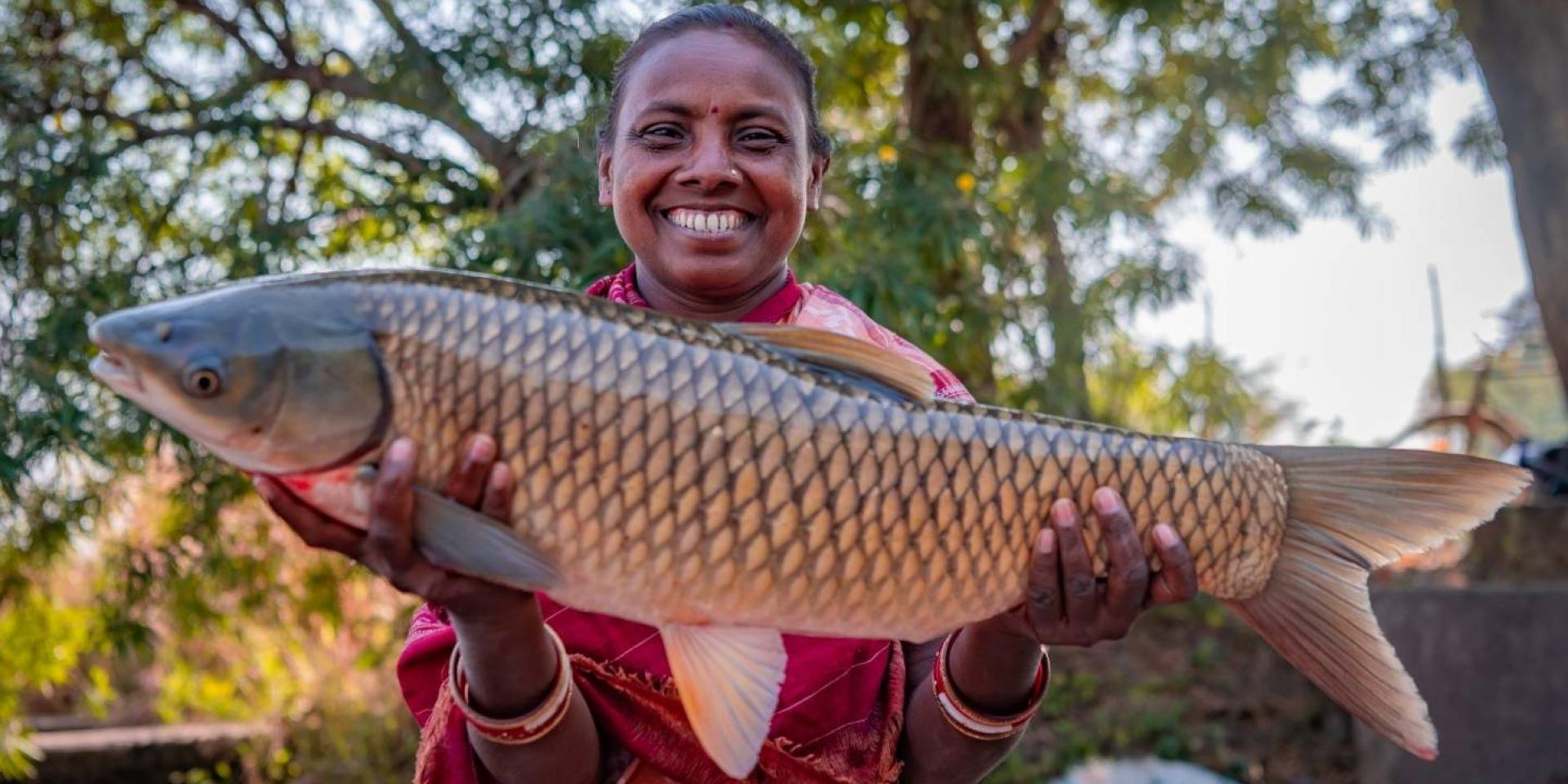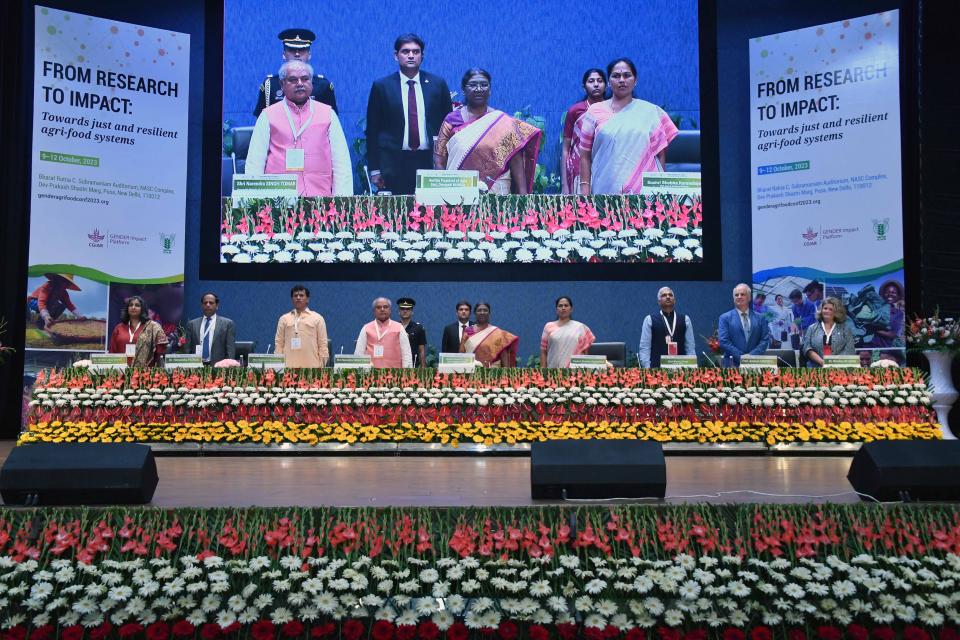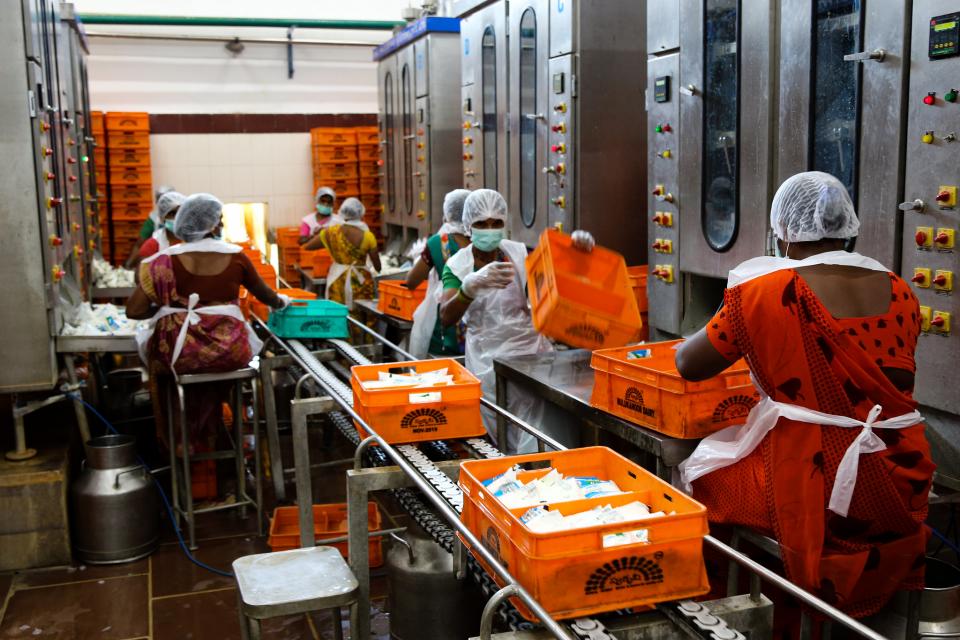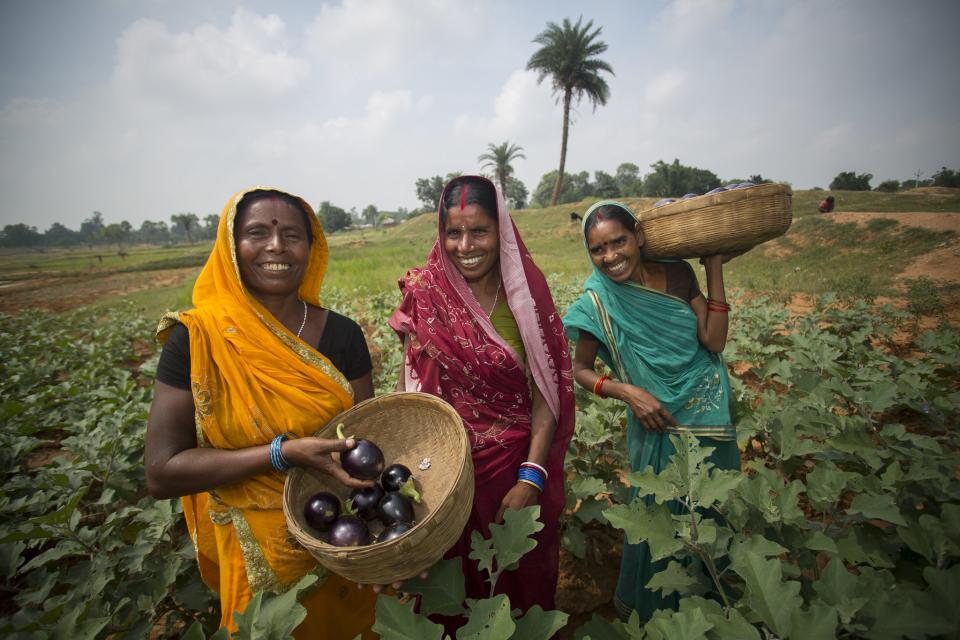Level playing field: Why it is important to improve opportunities for women farmers in India
 Photo: WorldFish.
Photo: WorldFish.
This is due in no small part to India's elevation of women-led development as a core theme in the G20 deliberations. The New Delhi Leaders' Declaration reaffirms the G20 countries' commitment to advance gender equality and empowerment for all women and girls, and it acknowledges that such efforts will have a multiplier effect in implementing the 2030 Agenda.
This op-ed was originally published by The Economic Times.
This is India’s moment on the world stage. With the successful completion of its G20 presidency and significant strides towards One Earth, One Family, One Future, India has made internationally recognised progress toward strong, balanced, sustainable, and inclusive growth to safeguard the future of our people and our planet.
This is due in no small part to India’s elevation of women-led development as a core theme in the G20 deliberations. The New Delhi Leaders’ Declaration reaffirms the G20 countries’ commitment to advance gender equality and empowerment for all women and girls, and it acknowledges that such efforts will have a multiplier effect in implementing the 2030 Agenda.
The Declaration explicitly sets out to promote women’s leadership and decision-making roles in climate action, food security, and nutrition. Indeed, a wealth of agricultural research indicates that to realise the much-needed transformation of agri-food systems, women must be supported to take up their rightful roles as champions of productivity, sustainability, and resilience.
World-class agricultural research, conducted through multi-stakeholder collaborations, should play a central role in identifying the priorities and innovations that can transform the G20 commitments into positive outcomes for women and men farmers, communities, and entire nations. Experiences from CGIAR and the Indian Council of Agricultural Research (ICAR)’s past collaborations show how research-driven agricultural innovations can both foster greater food security, nutrition and resilience, while also contributing to progress towards gender equality goals. ICAR has contributed on farm women’s nutritional security, livelihood enhancement, technological empowerment, drudgery reduction, and entrepreneurship development.
For example, we, with other partners, have collaborated to demonstrate the potential of group farms in the Eastern Gangetic Plains. Here many women are landless tenants with access to small farms. However, collectively pooling their land and farming a bigger plot together has allowed women to harvest a multitude of benefits. On bigger plots, they can scale, use tractors and irrigation systems. They can collaborate on planting and harvesting, and they save time and money when purchasing fertilisers and other inputs as a group. The results included increased diversity in crops and greater yields, both of which hold potential for improved food and nutrition security.
Nutrition is also set to increase for children, girls and pregnant and lactating women who are benefitting from the Government’s commendable decision to include fish and fish-based products in the Supplementary Nutrition Program of the State of Odisha. This decision was preceded by a partnership between CGIAR and ICAR researchers to support women to take up fish farming through self-help groups.
Training women to produce and process fish-based products not only boosted their incomes and business opportunities, but also increased the availability of and access to nutritious foods in the community, not least for the women and girls benefitting from the supplementary nutrition program.
When it comes to driving inclusive climate action, CGIAR and ICAR have leveraged high-tech satellite technology to develop inclusive flood insurance schemes that protect Indian farmers from flood risks. Using satellites to assess flood damage is a fast and cost-effective approach, and it makes the insurance cheaper and therefore more available to women and landless tenant farmers with limited means. Cheap insurance, with fast pay-outs, helps the most vulnerable farmers – often women – move on from destructive climate disasters and safeguard their food security and livelihoods. The government of India, through ICAR, has also initiated a large network project called National Innovation on Climate Resilient Agriculture (NICRA) dealing with natural resource management, crops, horticulture, livestock and fisheries. It has evolved a number of management practices to cope with abiotic stresses induced by climate variability and also demonstrated them on farmers’ fields in the most vulnerable districts across the country.
Efforts to achieve just, resilient and productive food systems are most likely to succeed when guided by agricultural research that pays specific attention to the needs and wants of rural women. That’s why the upcoming international research conference ‘From research to impact: Towards just and resilient agri-food systems,’ hosted by our two institutions, comes at a particularly opportune time to inform the efforts of the G20 countries as they take forward their recently ratified priorities.
Our joint convening will bring together a one-of-a-kind global networks of gender researchers with one of the world’s biggest national agricultural research institutions to discuss how to scale pilot projects and innovations, such as the ones detailed above. Resulting insights and recommendations may prove useful for policymakers, investors, and development partners, not only in India, but across the Global South. This event’s focus on sharing cutting-edge knowledge, research, and experience carries the promise of a firm foundational stone for us to leapfrog to an era of a gender-sensitive, just, and resilient agri-food systems for all.


